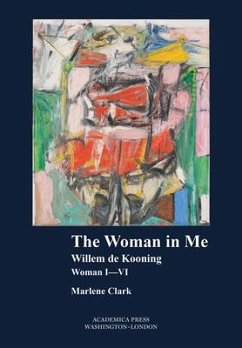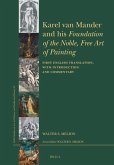Willem de Kooning's six numbered Woman paintings have incited a maelstrom of critical controversy. At their debut in 1953, the critics were incensed by the ugliness of the images themselves and by the inclusion of vestiges of the figure in abstraction. Consequently, they questioned De Kooning's attitude toward women and commitment to the Abstract Expressionist project. Countering such objections to De Kooning's psychological state and artistic goals, Marlene Clark's The Woman in Me: Willem de Kooning, Woman I-VI argues that these canvases could be read as self-portraits, negating claims of misogyny and explaining the presence of figuration amidst abstraction. On a number of occasions, De Kooning admitted that the images on these canvases were "me - but with big shoulders." The Woman in Me focuses on De Kooning's propensity to "play" with the sexed body in his paintings. Clark argues that earlier criticism may have missed a more philosophical dimension of De Kooning's paintings, one that explores the malleability of representations of biological sex and the male/female binary.
Hinweis: Dieser Artikel kann nur an eine deutsche Lieferadresse ausgeliefert werden.
Hinweis: Dieser Artikel kann nur an eine deutsche Lieferadresse ausgeliefert werden.








